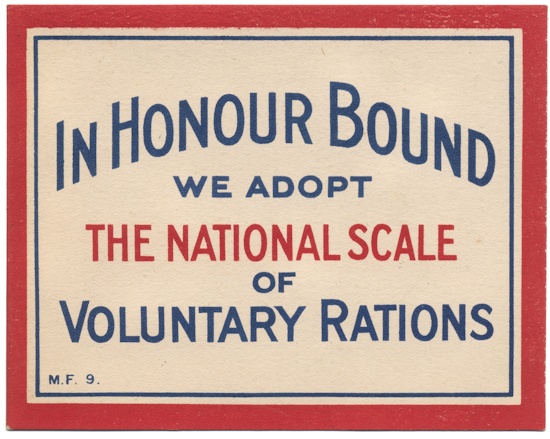 |
|
| News About Us Membership Events Links |
|

In Honour Bound
Despite the urgent appeals for economy which had been made to the nation during WWI, irregularity of deliveries and shortage of supplies due to Germany's campaign of submarine warfare caused serious concerns within government over British food stocks. A scheme of voluntary rationing was actively encouraged by the Ministry of Food who appealed, to mainly middle class families, to take up "The National Scale of Voluntary Rations". The weekly allowance consisted of four pounds of bread, two and a half pounds of meat and three quarters of sugar per week.
Households that adopted the scheme received a small card, a card of honour, printed in red, white and blue. The reverse of the card carried the message: One of the anomalies thrown up by wartime changes in diet and working practices was that many working men, who were used to the discomfort of going hungry, were now doing munition work and earning two or three times as much as before the war. Now able to buy a turkey for Christmas dinner for the first time in their lives, were of the opinion, they should not be the ones asked to stint on food. By the end of 1917 rationing was introduced on a local scale as shortages of butter, sugar and margarine escalated and a National Rationing Scheme was brought in the following year.
|
|
|
Home | News | About Us | Membership | Events | Links | Contact | Item of the month | Articles |
| Copyright © The Ephemera Society 2025. All Rights Reserved. |